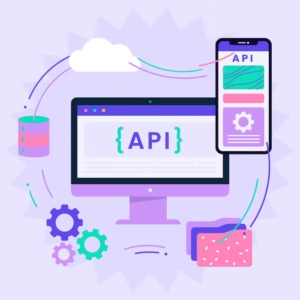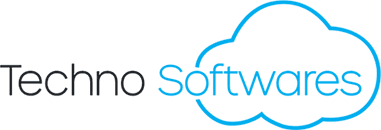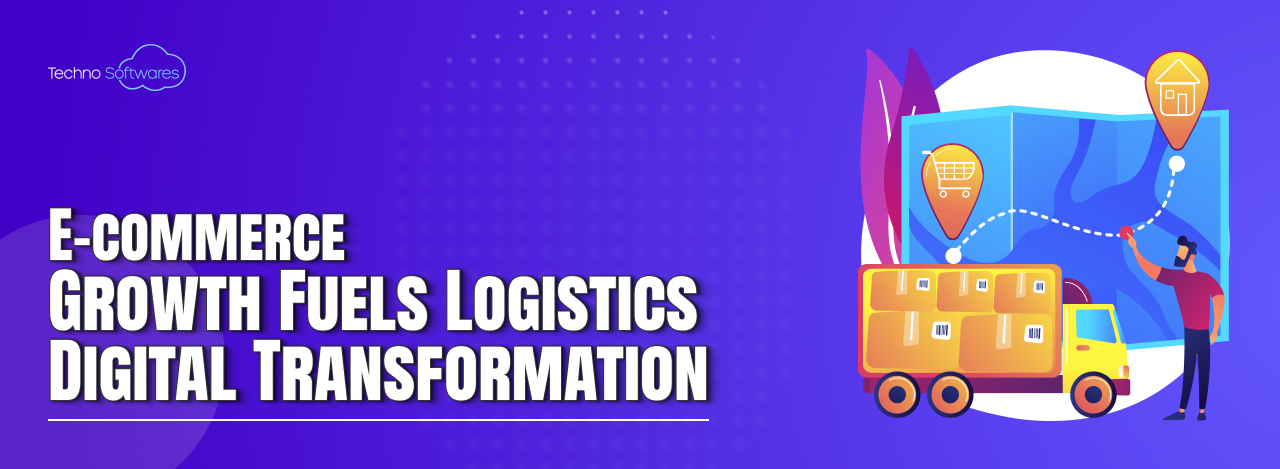How to Extract Data from Social Media Platforms Using Web Scraping APIs
In the digital age, social media platforms have become treasure troves of information, offering insights into consumer behavior, market trends, and public sentiment. As businesses and researchers seek to harness this wealth of data, web scraping APIs have emerged as essential tools for extracting valuable information from these platforms. Web scraping refers to the automated process of collecting data from websites, and when combined with APIs (Application Programming Interfaces), it allows for efficient and structured data retrieval.
This article delves into the intricacies of web scraping APIs specifically tailored for social media data extraction, exploring their significance, functionality, and the best practices for their effective use. The rise of social media has transformed how individuals and organizations communicate, share information, and engage with one another. With billions of users generating vast amounts of content daily, the potential for data extraction is immense.
Web scraping APIs facilitate this process by providing developers with the means to programmatically access and retrieve data from social media platforms. This capability not only streamlines the data collection process but also enables businesses to make informed decisions based on real-time insights derived from user-generated content.
Key Takeaways
- Web scraping APIs are a powerful tool for extracting data from social media platforms.
- Data extraction from social media platforms is important for understanding consumer behavior and market trends.
- Web scraping APIs play a crucial role in efficiently extracting data from social media platforms.
- Choosing the right web scraping APIs is essential for effective social media data extraction.
- Techno Softwares can build solutions for brand sentiment analysis using web scraping APIs.
Understanding the Importance of Data Extraction from Social Media Platforms
Data extraction from social media platforms is crucial for various reasons, primarily due to the insights it can provide into consumer preferences and behaviors. Businesses can analyze trends, gauge public sentiment, and monitor brand reputation by extracting data such as posts, comments, likes, shares, and user demographics. For instance, a company launching a new product can track conversations around its brand or similar products to understand consumer expectations and potential challenges.
This information can inform marketing strategies, product development, and customer engagement initiatives. Moreover, social media data extraction plays a pivotal role in competitive analysis. By monitoring competitors’ social media activities, businesses can identify successful strategies and areas for improvement.
For example, a restaurant chain might analyze customer feedback on competitors’ social media pages to refine its menu offerings or enhance customer service. Additionally, academic researchers and analysts utilize social media data to study societal trends, public opinion on various issues, and the impact of events in real-time. The ability to extract and analyze this data empowers organizations to stay ahead in an increasingly competitive landscape.
The Role of Web Scraping APIs in Extracting Data from Social Media Platforms

Web scraping APIs serve as the bridge between users and the vast amounts of data available on social media platforms. These APIs allow developers to create applications that can automatically retrieve data without manual intervention. By leveraging web scraping APIs, businesses can access structured data in a format that is easy to analyze and integrate into their existing systems.
This automation not only saves time but also reduces the likelihood of human error during data collection. The functionality of web scraping APIs varies across different platforms. For instance, some APIs may provide access to public posts and comments, while others may allow for more granular data extraction, such as user interactions or engagement metrics.
Additionally, many social media platforms impose rate limits on API calls to prevent abuse and ensure fair usage. Understanding these limitations is crucial for developers when designing their data extraction strategies. By utilizing web scraping APIs effectively, organizations can gather comprehensive datasets that inform their decision-making processes.
Choosing the Right Web Scraping APIs for Social Media Data Extraction
Selecting the appropriate web scraping API is a critical step in the data extraction process. Various factors must be considered to ensure that the chosen API aligns with the organization’s specific needs and objectives. One of the primary considerations is the type of data required.
Different APIs offer varying levels of access to social media data; some may focus on textual content, while others may provide multimedia elements such as images or videos. Organizations must clearly define their data requirements before evaluating potential APIs. Another important factor is the API’s ease of use and integration capabilities.
A well-documented API with comprehensive support resources can significantly reduce development time and facilitate smoother integration into existing systems. Additionally, organizations should consider the scalability of the API; as data needs grow over time, the chosen solution should be able to accommodate increased demands without compromising performance. Cost is also a significant consideration; while some APIs are free or offer tiered pricing models based on usage, others may require substantial investment upfront.
Balancing these factors will help organizations make informed decisions when selecting web scraping APIs for social media data extraction.
How Techno Softwares Can Build Solutions for Brand Sentiment Analysis
Techno Softwares specializes in developing customized solutions that leverage web scraping APIs for brand sentiment analysis. By harnessing the power of these APIs, Techno Softwares can create applications that monitor social media conversations about a brand in real-time. This capability allows businesses to gauge public sentiment accurately and respond proactively to customer feedback or emerging trends.
For instance, Techno Softwares can design a solution that aggregates data from multiple social media platforms, analyzing user comments and posts related to a specific brand or product. By employing natural language processing (NLP) techniques, the application can classify sentiments as positive, negative, or neutral, providing businesses with actionable insights into how their brand is perceived in the market. This information can be invaluable for marketing teams looking to refine their messaging or for customer service departments aiming to address concerns promptly.
Leveraging Web Scraping APIs for Trend Tracking on Social Media Platforms
Web scraping APIs play a vital role in social media data extraction, enabling organizations to stay ahead of the curve by identifying emerging trends that can impact their business strategies **
### Identifying Emerging Trends
Organizations can continuously monitor conversations and hashtags across various platforms, identifying emerging trends that may influence their business strategies. For instance, a fashion retailer could use web scraping APIs to track trending styles or colors based on user-generated content on platforms like Instagram or Twitter.
### Adapting to Changing Consumer Preferences
The ability to analyze trends in real-time allows businesses to adapt quickly to changing consumer preferences. For example, if a fashion trend gains traction among influencers or celebrities, retailers can adjust their inventory or marketing campaigns accordingly to capitalize on this momentum.
### Informing Product Development
Trend tracking can also inform product development; by understanding what consumers are excited about, companies can innovate and create offerings that resonate with their target audience.
The Legal and Ethical Considerations of Using Web Scraping APIs for Social Media Data Extraction
While web scraping APIs offer powerful capabilities for data extraction, they also raise important legal and ethical considerations that organizations must navigate carefully. Many social media platforms have terms of service that explicitly outline acceptable use policies regarding data access and usage. Violating these terms can lead to account suspension or legal repercussions.
Therefore, organizations must familiarize themselves with these policies before implementing web scraping solutions. Ethical considerations also come into play when extracting data from social media platforms. Users often share content with an expectation of privacy or limited distribution; thus, organizations must consider how they handle this data responsibly.
Anonymizing user information and ensuring compliance with data protection regulations such as GDPR (General Data Protection Regulation) is essential in maintaining ethical standards in data extraction practices. By prioritizing legal compliance and ethical considerations, organizations can build trust with their users while leveraging valuable insights from social media data.
Best Practices for Extracting Data from Social Media Platforms Using Web Scraping APIs
To maximize the effectiveness of web scraping APIs for social media data extraction, organizations should adhere to several best practices. First and foremost is ensuring compliance with platform-specific guidelines and regulations. Understanding the limitations imposed by each platform’s API will help prevent potential issues related to rate limits or unauthorized access.
Additionally, implementing robust error handling mechanisms is crucial for maintaining data integrity during extraction processes. This includes monitoring API responses for errors and implementing retries or fallbacks when necessary. Organizations should also consider scheduling regular data extraction intervals to ensure they capture timely information without overwhelming the API with requests.
Furthermore, maintaining clear documentation of the data extraction process is essential for future reference and troubleshooting. This documentation should include details about the chosen API endpoints, parameters used in requests, and any transformations applied to the extracted data before analysis. By following these best practices, organizations can enhance their web scraping efforts while ensuring compliance and reliability.
Case Studies: Successful Implementation of Web Scraping APIs for Social Media Data Extraction
Numerous organizations have successfully implemented web scraping APIs for social media data extraction, yielding significant benefits across various industries. One notable case is a leading e-commerce platform that utilized web scraping APIs to monitor customer reviews across multiple social media channels. By analyzing sentiment trends related to their products, they were able to identify areas for improvement in product quality and customer service.
Another example involves a political campaign that leveraged web scraping APIs to track public sentiment regarding key issues during an election cycle. By analyzing conversations on Twitter and Facebook, campaign strategists could adjust messaging in real-time based on voter sentiment shifts. This agile approach allowed them to resonate more effectively with constituents and ultimately contributed to their electoral success.
The Future of Data Extraction from Social Media Platforms Using Web Scraping APIs
As technology continues to evolve, so too will the capabilities of web scraping APIs for social media data extraction. The integration of artificial intelligence (AI) and machine learning (ML) into these tools will enhance their ability to analyze vast datasets more efficiently and accurately than ever before. For instance, advanced algorithms could identify nuanced sentiment shifts or emerging trends that traditional methods might overlook.
Moreover, as privacy regulations become increasingly stringent worldwide, web scraping APIs will need to adapt accordingly. Organizations will likely invest more in ethical data practices and transparency regarding how they collect and use social media data. This shift will not only help build trust with users but also ensure compliance with evolving legal frameworks.
Harnessing the Power of Web Scraping APIs for Social Media Data Extraction
The potential of web scraping APIs for extracting valuable insights from social media platforms cannot be overstated. As businesses strive to remain competitive in an ever-changing landscape, leveraging these tools will be essential for informed decision-making and strategic planning. By understanding the importance of social media data extraction, choosing the right APIs, adhering to legal and ethical standards, and implementing best practices, organizations can unlock new opportunities for growth and innovation in their respective fields.
If you are interested in offshore software development and maintenance services, Techno Softwares has a blog post that discusses the benefits and advantages of outsourcing these tasks. You can read more about it here. Additionally, if you are looking to develop an e-scooter app, Techno Softwares also has a blog post on the benefits of using containerization in e-scooter app development. You can find more information here. Lastly, if you are in need of professional web design services in India, Techno Softwares can help. Learn more about hiring a professional web design agency in India here.
Get Scraping Service (FREE Demo)
FAQs
What is web scraping?
Web scraping is the process of extracting data from websites. It involves using automated tools to gather information from web pages and store it for further analysis.
What are social media platforms?
Social media platforms are online services that allow users to create and share content, as well as connect with other users. Examples of social media platforms include Facebook, Twitter, Instagram, and LinkedIn.
What is a web scraping API?
A web scraping API is an interface that allows developers to access and extract data from websites in a structured and organized manner. It provides a set of tools and methods for retrieving specific information from web pages.
How can web scraping APIs be used to extract data from social media platforms?
Web scraping APIs can be used to extract data from social media platforms by accessing the platform’s public APIs and using web scraping techniques to gather information from public profiles, posts, comments, and other relevant data.
What is brand sentiment analysis?
Brand sentiment analysis is the process of analyzing public opinion and perception of a brand or product by collecting and analyzing social media data. It involves identifying and categorizing opinions as positive, negative, or neutral to gauge the overall sentiment towards a brand.
What is trend tracking?
Trend tracking involves monitoring and analyzing the popularity and impact of specific topics, keywords, or hashtags on social media platforms. It helps businesses and organizations stay informed about current trends and consumer interests.
How can Techno Softwares build solutions for brand sentiment analysis and trend tracking?
Techno Softwares can build custom web scraping APIs and data analysis tools to extract, process, and analyze data from social media platforms. They can develop tailored solutions for brand sentiment analysis and trend tracking to help businesses gain insights into consumer sentiment and market trends.





